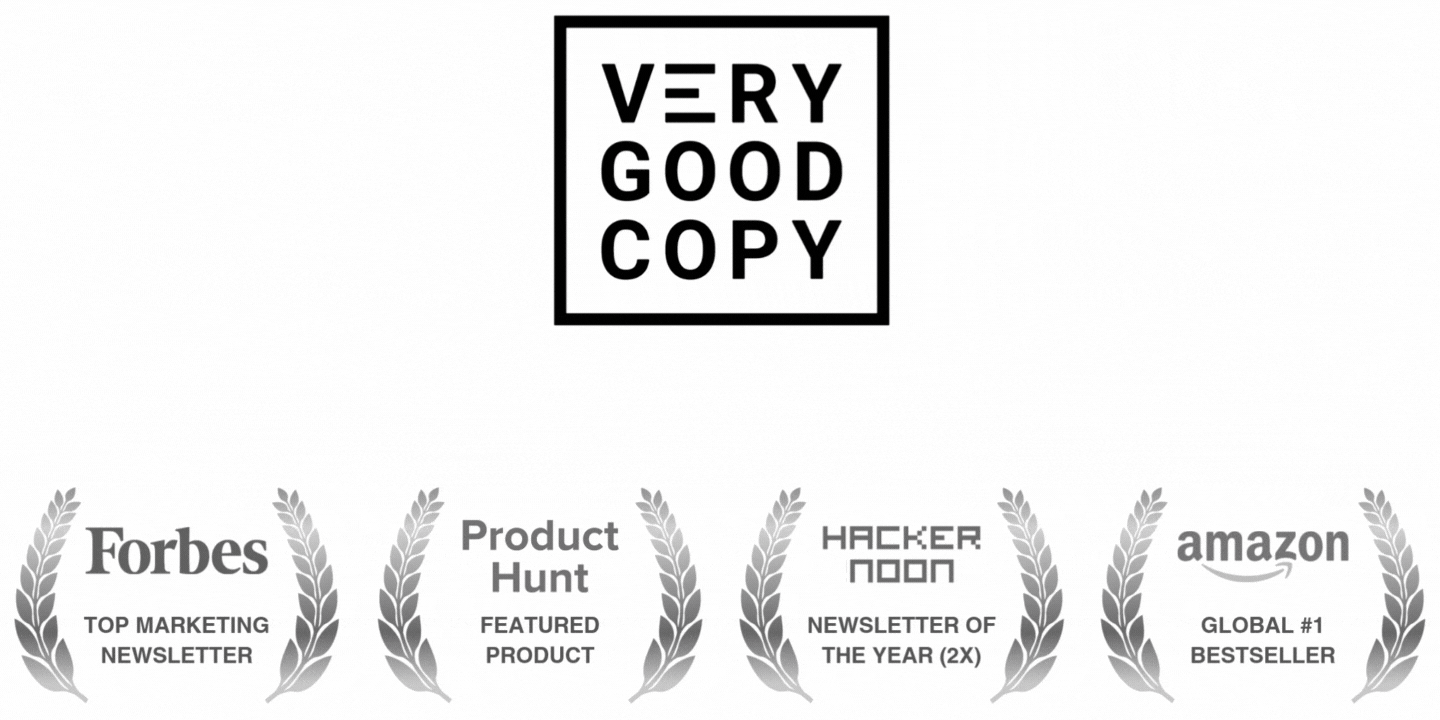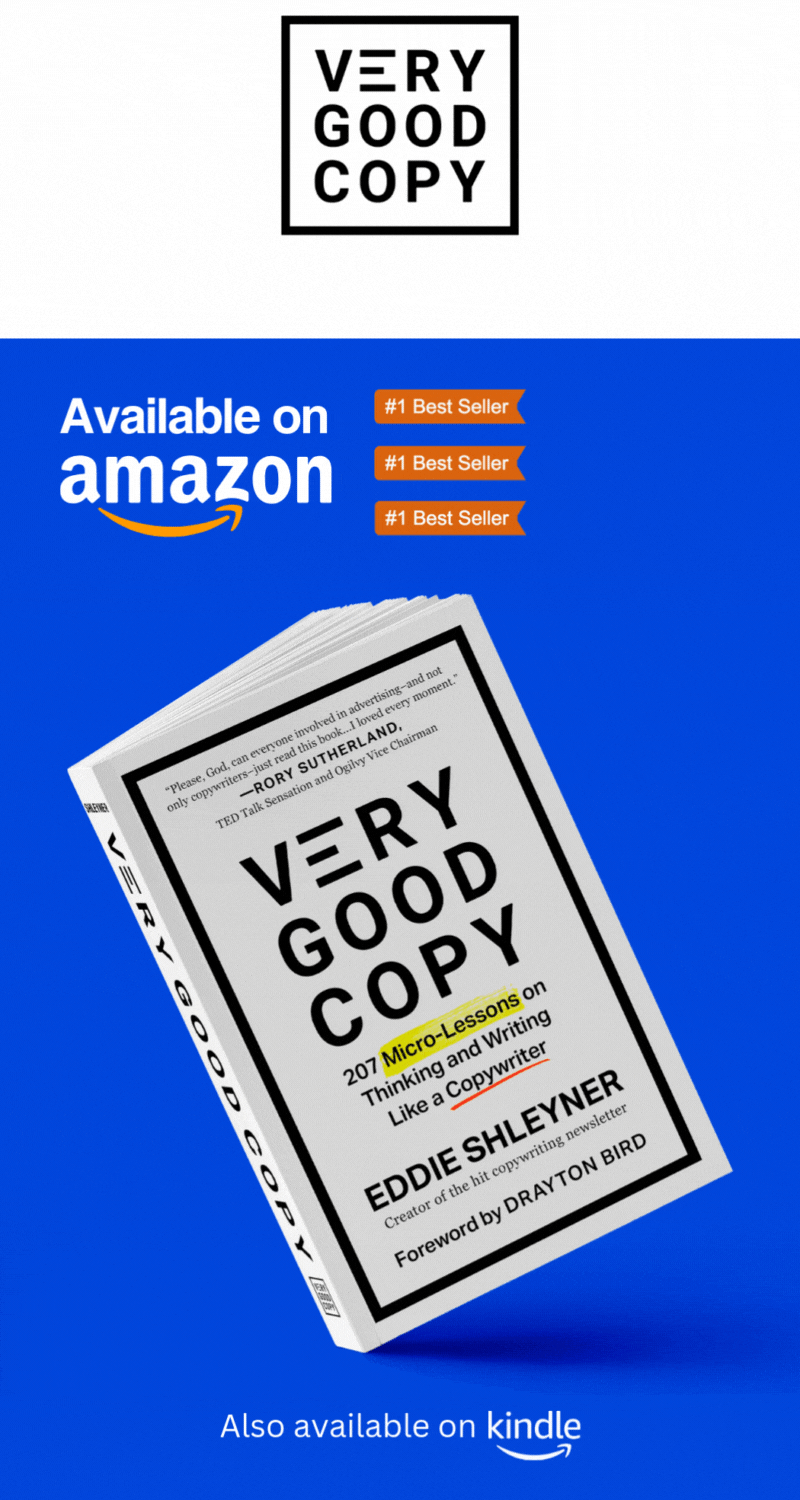EDITOR’S NOTE:
Rachael Pilcher owns a delightful agency called Mighty Fine Copy.
What’s more, she built it while traveling across 20+ countries since 2016, living out of her backpack.
Pretty remarkable, admirable.
And now she’s here with us, making a quick stop to do a Micro-Interview. :)
In only 591 words, Rachael shares:
A masterclass book on using the customer’s voice to write copy…
How to take your copywriting business to the next level…
The pain of burnout — and how to avoid it…
And more…
Enjoy!
Instantly get 6 “micro” courses and series about copywriting when you subscribe to the VeryGoodCopy newsletter for free. Plus...enjoy new content every week. Learn more →
Thank you, Rachael.
Let’s get started:
1) “What’s your work routine?”
I wake up pretty early and spend the first part of the day reading something from my overflowing Kindle library, briefly scrolling social (in case anything interesting happened overnight), exercising, and doing general business admin.
I aim to work 10am to 1pm, then again from 3pm to 6pm. Having those focused blocks where I'm not tempted to waste time on the internet or email has been super helpful with getting projects completed faster, and delivering higher quality work for clients.
2) “What do you know about your work now that you wish you’d known when you first started?”
I wish I'd said NO to more things.
In the early days I felt obliged to take everything and anything that came my way in case I never found another client — and I suffered through some truly awful projects because of it.
So, if future me could go back and talk to n00b me, I would say don't stress about the money. No amount of it is worth hating every second of a project. It's okay to say no to things that aren't a good fit or have a massive red flag waving over them.
3) “What did your biggest professional failure teach you?”
I think my biggest failure is more of an overarching and ongoing one — the dreaded burnout.
I'm a workaholic by nature, so it's really easy to just...work. All the time. And most of that tends not to be productive, it just feels like it.
But if you don't give your body and your brain a rest, they will do it for you when you least expect it, and it's a big price to pay. After the frozen shoulder, RSI, back pain, eye strain, insomnia and a raft of other fun stress-related things — I'm slowly learning the art of self care, working smarter, and stepping away from the laptop!
4) “What’s the #1 thing that has helped you shorten your craft’s learning curve?”
Coaching and mentoring have been fantastic.
There's nothing like personal and small group learning to pinpoint things that can help you quickly improve both your writing and your business skills. Just be sure to do the groundwork to find mentors and programs that are the right fit for you — otherwise you can make some expensive mistakes (and yes, I have been there).
Joanna Wiebe's Copy School was also well worth the money. I don't think I'll ever get it finished — as there is SO much in there — but when I'm working on a project and I need some inspiration or expert guidance, it has been a goldmine to have on hand.
5) “What book has helped you the most over your career?”
Finding the Right Message by Jen Havice.
I have 3 copies now, and I even have a testimonial printed in her latest edition because I'm such a fangirl. As a conversion copywriter, it's essential to learn the art of collecting and analyzing the voice of your customers, and then learning how to apply this to your copy to drive conversions.
This book is a masterclass on the subject.
6) “And your parting piece of advice?”
There will come a point in your copywriting business where you need to invest back into it. Whether this is through coaching, courses, masterminds, or live events — your business can't thrive and grow unless you give it a little help.
Networking and learning from people who are a few steps ahead, creating or joining groups with fellow copywriters — these are critical steps to building a successful business.





